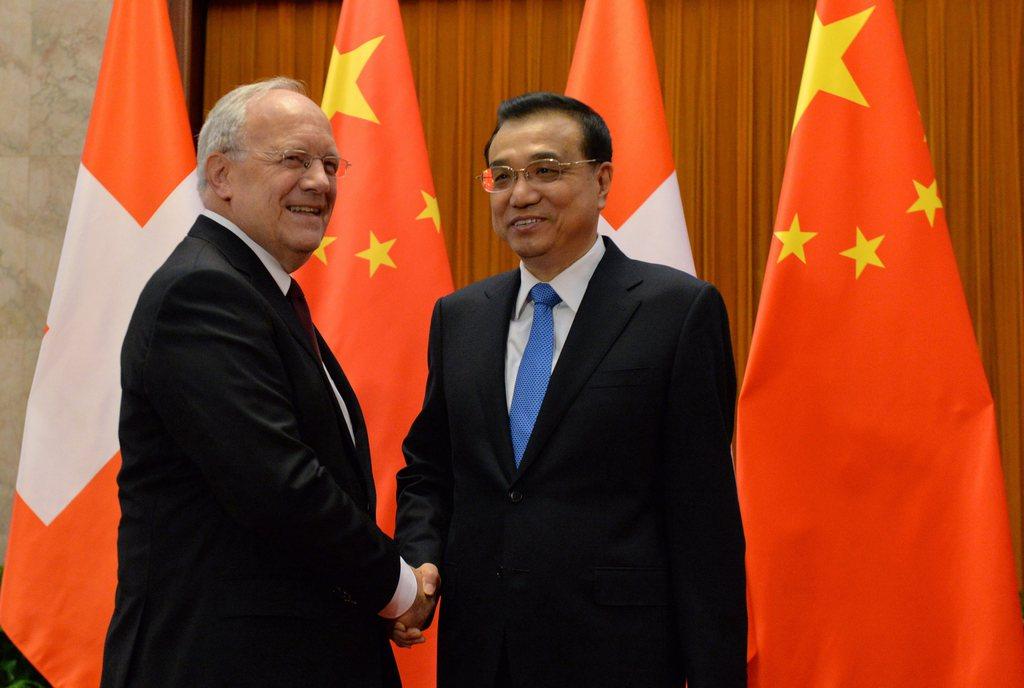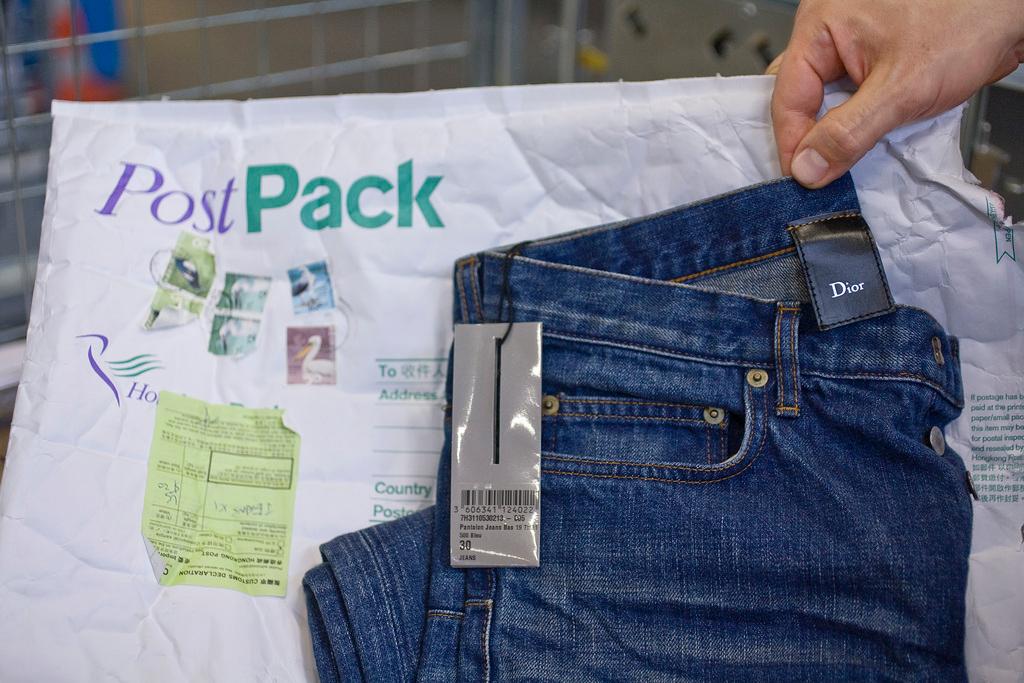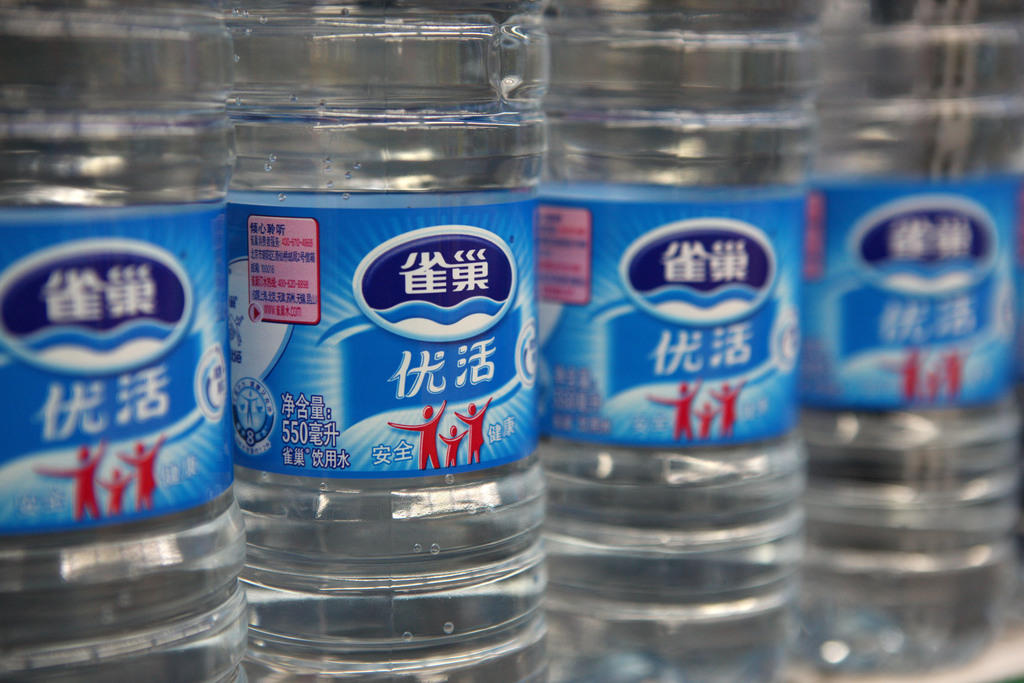China – Switzerland’s new online market place

Chinese online retailers are targeting customers looking for a bargain in expensive Switzerland. More and more Swiss are being seduced by the unbeatable prices on offer.
It is estimated that around 20,000 packages a day make their way to Switzerland from China. Electronics, textile and clothes, mobile phone and tablet cases, handbags, and counterfeits of all kinds are some of the products the Swiss like to order from China.
While Swiss consumers are ecstatic the same cannot be said of the country’s online vendors.
“By choosing the unknown in this manner, there is always a certain risk in terms of quality,” says Patrick Kessler, president of the Swiss Association of Distance Selling.
It is a risk that some are willing to take. An artisan, who wished to remain anonymous, told swissinfo.ch that he had purchased a “Made in China” Ulefon mobile phone two months ago on the Tinydeal website. The screen has already started to come off but the owner is not too bothered.
“In any event, I only plan on using it for one year. A similar phone would be several times more expensive in Switzerland. Instead, for the same amount of money, I can buy a new phone every year from China,” he says.
“Swiss consumers are perfectly aware that things cost more in their country than elsewhere. And sometimes they feel they are being ‘cheated’ and respond by opting for bargains abroad even though they can afford Swiss prices,” says Ralf Wölfle, director of the E-Business Competence Center at the University of Applied Sciences of Northwestern Switzerland.
According to Wölfle, the threat to Swiss businesses is still small and confined to specific sectors. But he warns that in a decade, with the professionalisation of the online market place, the value of these platforms could increase considerably and threaten the very existence of Swiss traders in certain market segments.
Unfair competition?
While Swiss online shops can’t compete with Chinese prices, they are frustrated by the free delivery service offered by their Far East competitors. This is possible in large part due to the current system of differential “terminal dues” – the charge paid to a destination country’s postal service for processing and delivering an item – set by the Universal Postal Union (UPU). Developing countries like China pay significantly lower terminal dues for parcels under two kilos.
“Why can a Chinese online vendor send a parcel of three centimetres thickness and weighing 700 grams for CHF1.70 while a Swiss vendor has to pay CHF7 for the same parcel?” asks Kessler. “It is a gross distortion of competition and incomprehensible. These provisions of the UPU pre-date the globalisation of trade and must be modified.”
Cai Fangcai, the economic adviser of the Chinese embassy in Switzerland does not share the same view. According to him, even though China is the world’s second largest economy its per capita GDP is quite low making it the largest developing country. He also adds that the difference in tariffs is not a protectionist measure on China’s part but has been jointly agreed by member states of the UPU.
Nevertheless, e-commerce services like the Swiss Post are suffering. A spokesperson told the German-language newspaper Tages-Anzeiger that processing small packages from China under the UPU tariff structure is far from profitable for the firm.
However, a potential obstacle looms on the horizon that could put a brake on cheap postal charges for Chinese vendors. The preferential postal rates offered to China are up for discussion at the Universal Postal Union Congress in Istanbul beginning on September 21.
Grey zone
According to Swiss postal regulations, customs duties and value added tax are not charged if they amount to less than CHF5 per customs declaration. Citing the Tages-Anzeiger, Keller claims that 95% of parcels arriving from China have false or insufficient customs declarations. Even though the postal sorting centre in Zurich-Mülligen is required to sometimes check the parcels, many pass though unmolested. Certain vendors divide an order into several different parcels with the aim of avoiding taxes.
Consumers are also complicit by participating in dubious transactions. A student told swissinfo.ch that she is interested in a backpack that costs CHF89 on the Swiss site Siroop. Chinese website AliExpress offers something similar for $19. Even though she is aware that the Chinese piece is a counterfeit, the price difference makes it a tempting buy.
This year’s Swiss e-commerce report has also revealed that certain buyers purchased a branded product from a Swiss vendor and its fake equivalent from China. They then kept the authentic item and returned the fake to the Swiss vendor to claim reimbursement.
Fighting back
It is clear that Chinese online vendors offer something that the Swiss like. Is there a way to beat them at their own game?
“At the lower end of the market, Swiss vendors can do nothing against Chinese competition if consumers are fixated on price, do not require rapid delivery, and are not too worried about quality,” says Wölfle.
According to him, Swiss online sellers can succeed only if the value-added in their products clearly justifies the difference in price.
Kessler also agrees that the Swiss should not get involved in a price war but focus on quality, service and speed of delivery. He also advocates Swiss sellers to look at tapping into the global consumer base.
“There are buyers for Swiss products all around the world – even in China,” he says.
According to the 2015 figures released by the Swiss Association of Distance Selling, online purchases by Swiss consumers increased by 7.5% amounting to a total of CHF6.45 billion.
Top sellers were electronics, followed by clothes and shoes.
What would motivate you to buy Chinese products online? Share your views in the comments section below.
Translated by Anand Chandrasekhar

In compliance with the JTI standards
More: SWI swissinfo.ch certified by the Journalism Trust Initiative













You can find an overview of ongoing debates with our journalists here . Please join us!
If you want to start a conversation about a topic raised in this article or want to report factual errors, email us at english@swissinfo.ch.